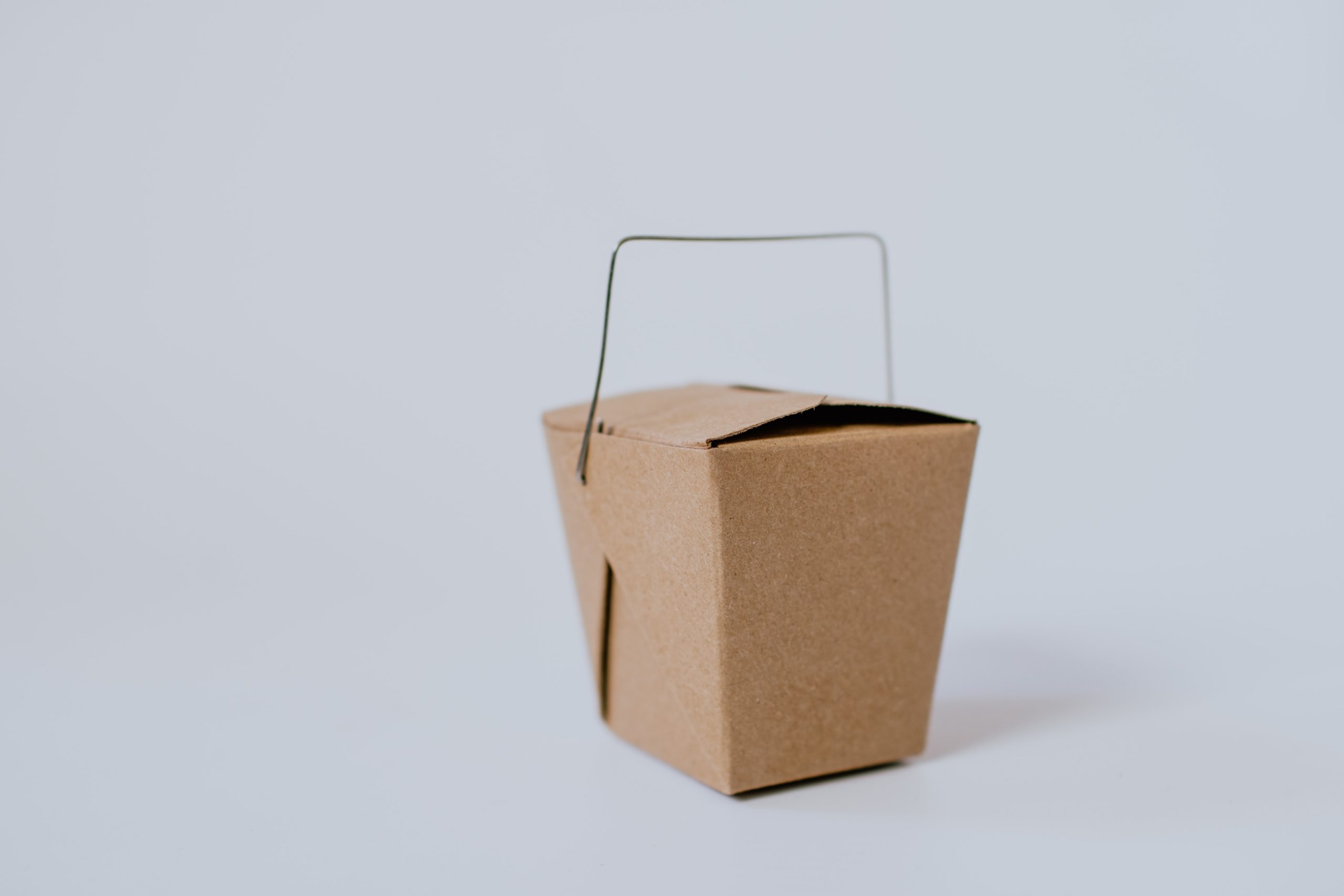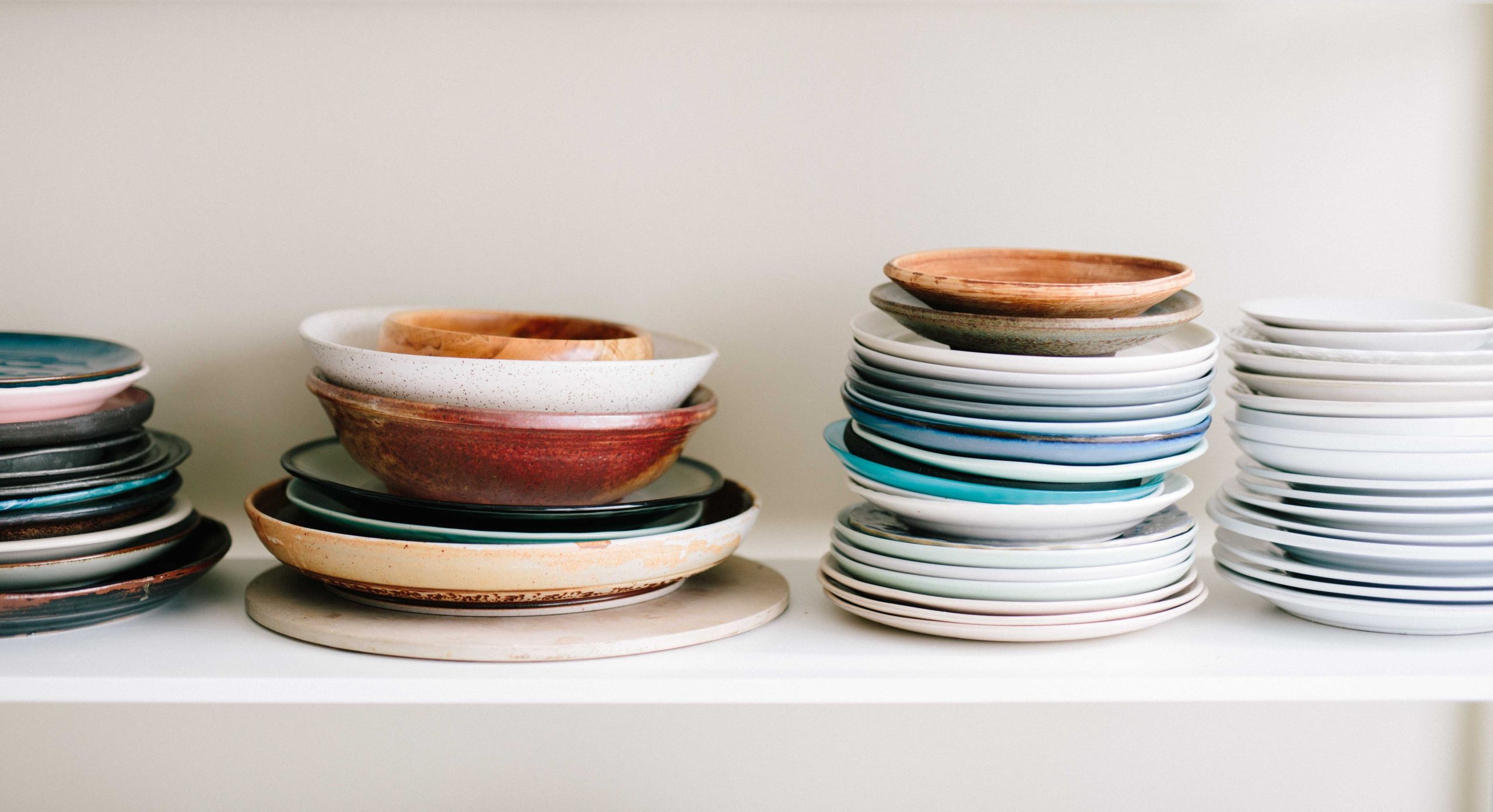According to The World Counts, we throw away “60 tons of household waste a second” and, by 2050, household waste will increase by 70 percent, reaching 3.4 billion tons a year. This means that “waste generation will outpace population growth by more than double.”
We thought now was a good time to reexamine our waste production at home, since we have all been spending a lot more time there due to COVID-19. Today, we wanted to take a closer look at our kitchens specifically.
With all the paper and plastic and disposable options out there, the kitchen tends to be a place where the accumulation of waste is effortless and frequent. However, we’ve compiled some simple waste-proof alternatives which will also save you money in the long run.
Bring out the Fine China
Okay, it doesn’t have to be “fine”, but investing in some reusable dishes, silverware, glasses, etc. is a great place to start (reusability will be a reoccurring theme here). Having a nice set of dinnerware to elevate your food game everyday and needing no other reason to use it other than, well, you know, saving the planet makes doing the dishes all the more worth it afterwards.
What Plastic?
Plastic is everywhere, but it certainly doesn’t have to be everywhere at home. Take totes to the grocery store. Opt out of those little baggies that you put your avocados or bell peppers in. If you still want to separate everything, try these produce bags instead. For snacks and leftovers, these reusable ziplock bags are great.
We also buy about 42.6 billion individual water bottles each year which equates to 11.8 billion dollars. Why not save the hassle and the money and purchase a reusable water bottle? If you aren’t a fan of tap water, you can always invest in a water filter too.
Now, Let’s Talk Paper (& aluminum)…
From paper napkins to paper towels, the kitchen is ripe with paper products. However, you can easily trade your paper napkins in for the fabric kind and those paper towels in for reusable ones. Similarly, if you are a fan of non-stick aluminum foil, start greasing your pans using whatever oil you have on hand instead. Of course, these suggestions aren’t as convenient as their disposable counterparts, but if you don’t keep the disposable stuff around, you won’t miss it as much as you might expect.

Mindfulness Matters
Minimizing your waste in the kitchen really just comes down to taking a look at your habits. Whatever you are using or doing that is particularly wasteful, replace it with a more eco-friendly option after using up what you already have. Maybe you notice that you eat out a lot, and all of that takeout packaging adds up. To combat this, for example, you challenge yourself to make one more meal at home during the week. If you are looking for other ideas, Freckled Hen Farmhouse also has an eco-friendly supplies section on their online store.
A Word or Two on Recycling and Composting
The EPA estimates that 75% of household trash is recyclable, so recycling is another way we can cut back on our waste production. At Brick Avenue Lofts our commitment to sustainability is extremely important to us, so making it easy for our residents to recycle is a top priority. This is why we recycle paper, plastic, glass, and aluminum. Valet Living picks up recycling Sunday-Thursday evenings right from our residents’ doorsteps.
In terms of composting, the FDA, explains that organic waste, mostly food, is the second biggest component of landfills. Landfills are the third largest source of methane emissions, methane being a major contributor in global warming. In order to keep this food from ending up in landfills, composting gives food scraps a second life. Compost can be used to nourish the soil, grow new crops, and even improve water quality. At Brick Avenue Lofts, we are partnered with Food Loops in order to encourage and offer our residents the ability to compost.
Given that 30-40% of our food goes uneaten however, it should be noted that composting should be the last step in reducing food waste as there are other more proactive steps we can take in keeping our food waste to a minimum like meal prepping, sticking to a shopping list, only buying what we need and can use before the “best buy” dates, understanding “expiration” and “best buy” dates and best practices for storing food, feeding the hungry, etc.. Ideally, composting should consist of the inedible parts of your food.
What are you doing right now to reduce waste in your kitchen?
For low-impact decorating tips, check out our blog post here.

